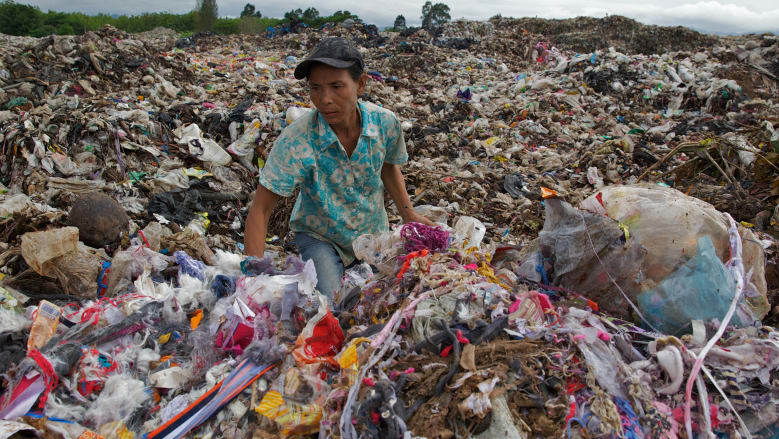Recycling: A Globally Broken System

Recycling is simply broken. This story of what happens to workers “recycling” computers shipped to Thailand is telling of the many problems with the system.
Crouched on the ground in a dimly lit factory, the women picked through the discarded innards of the modern world: batteries, circuit boards and bundles of wires.
They broke down the scrap — known as e-waste — with hammers and raw hands. Men, some with faces wrapped in rags to repel the fumes, shoveled the refuse into a clanking machine that salvages usable metal.
As they toiled, smoke spewed over nearby villages and farms. Residents have no idea what is in the smoke: plastic, metal, who knows? All they know is that it stinks and they feel sick.
The factory, New Sky Metal, is part of a thriving e-waste industry across Southeast Asia, born of China’s decision to stop accepting the world’s electronic refuse, which was poisoning its land and people. Thailand in particular has become a center of the industry even as activists push back and its government wrestles to balance competing interests of public safety with the profits to be made from the lucrative trade.
Last year, Thailand banned the import of foreign e-waste. Yet new factories are opening across the country, and tons of e-waste are being processed, environmental monitors and industry experts say.
“E-waste has to go somewhere,” said Jim Puckett, the executive director of the Basel Action Network, which campaigns against trash dumping in poor countries, “and the Chinese are simply moving their entire operations to Southeast Asia.”
“The only way to make money is to get huge volume with cheap, illegal labor and pollute the hell out of the environment,” he added.
Each year, 50 million tons of electronic waste are produced globally, according to the United Nations, as consumers grow accustomed to throwing away last year’s model and acquiring the next new thing.
The notion of recycling these gadgets sounds virtuous: an infinite loop of technological utility.
But it is dirty and dangerous work to extract the tiny quantities of precious metals — like gold, silver and copper — from castoff phones, computers and televisions.
For years, China took in much of the world’s electronic refuse. Then in 2018, Beijing closed its borders to foreign e-waste. Thailand and other countries in Southeast Asia — with their lax enforcement of environmental laws, easily exploited labor force and cozy nexus between business and government — saw an opportunity.
“Every circuit and every cable is very lucrative, especially if there is no concern for the environment or for workers,” said Penchom Saetang, the head of Ecological Alert and Recovery Thailand, an environmental watchdog.
And while e-waste is perhaps the most consistently toxic version of this, most of the recycling industry is about getting everyday consumers to “responsibly” give dilapidated materials back to corporations to create new profit streams in the name of environmental responsibility. And theoretically, this is entirely possible. But in fact, what happens is that huge amounts of it, everything from computers to your plastic yogurt cups get shipped overseas, mostly to Asia, where if they are repurposed at all, it’s in an incredibly toxic environment that poisons both workers and the land, precisely the opposite of what recycling is supposed to do and what you think you are doing when you dump your own phone or computer somewhere for recycling. A lot of the rest ends up in the poorly developed refuse systems of the global South, which means plastics into the oceans.
Meanwhile, once consumers put their stuff out in the blue boxes–which many could not imagine not doing–they assume they are helping the world. But they are not. It’s not really their fault except that we need to pay attention to global systems and not just our own personal consumer behavior. That’s basically the topic of Out of Sight, my first book. But that is the reality of a deeply broken system. Honestly, you’d probably doing the environment and the world’s workers a greater service by just dumping it all in the trash.
Now, if you will excuse me, I need to go get the recycling bins now that they’ve been picked up this morning.


